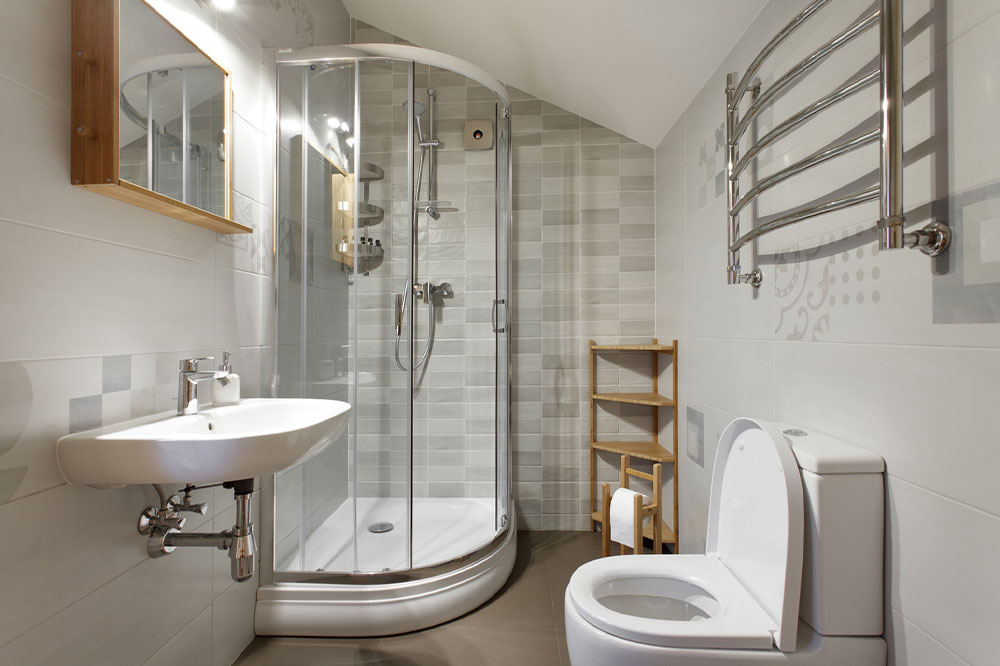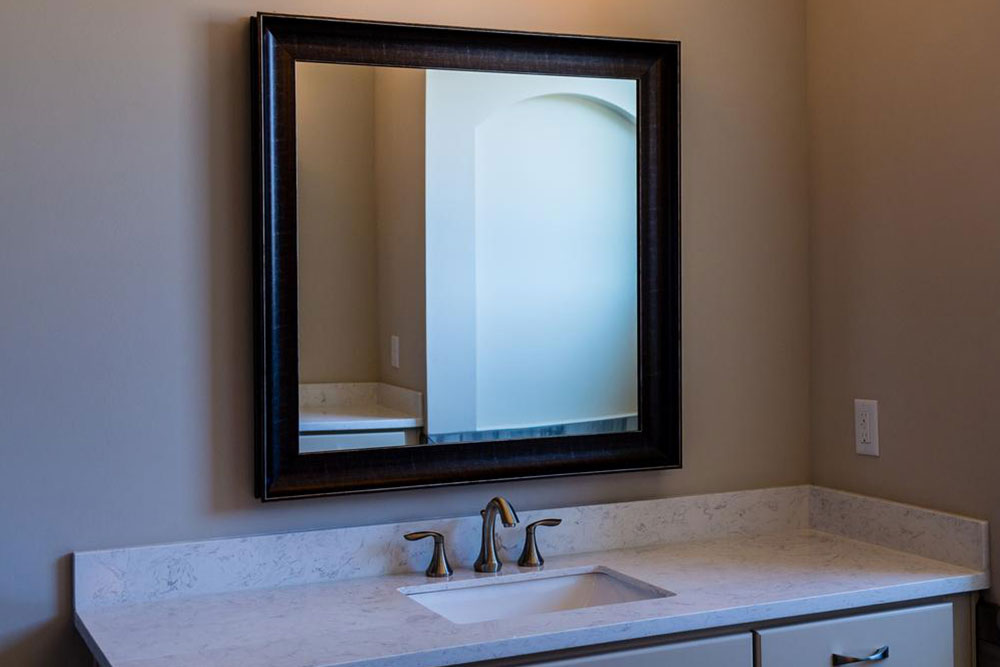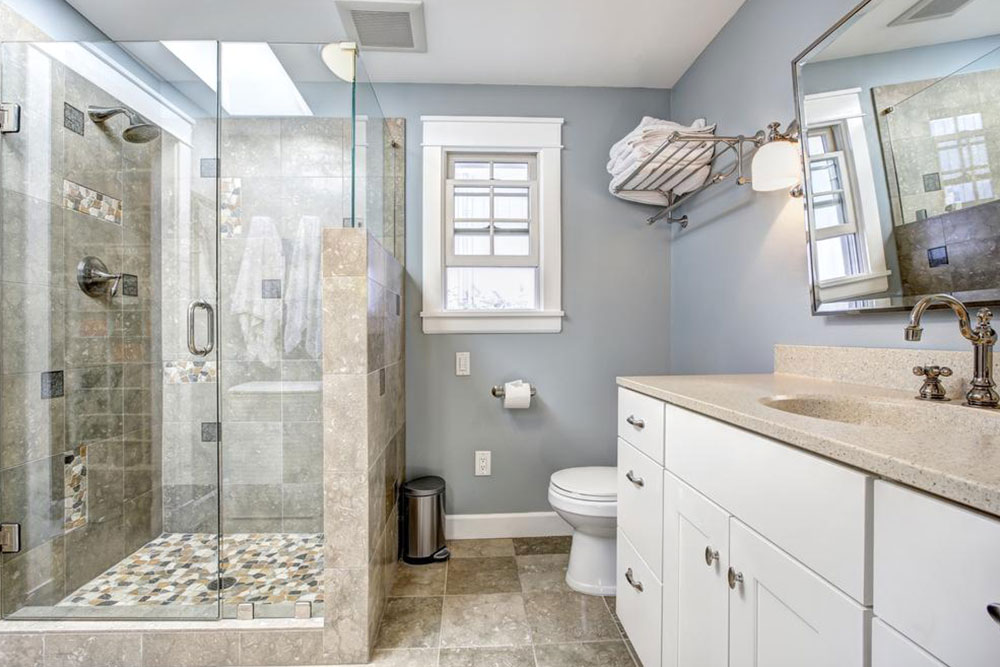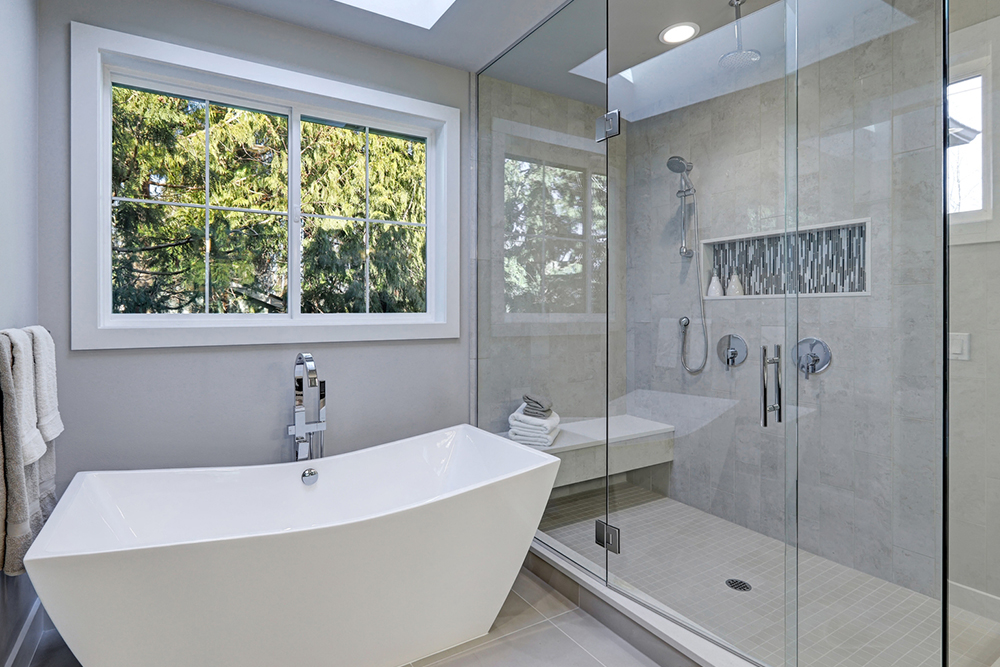Modern Walk-In Shower Benefits and Considerations
Discover the advantages and considerations of modern walk-in showers, including their spacious design, ease of maintenance, and stylish appeal. Learn how to optimize safety, privacy, and water management while exploring cost-effective tips to enhance your bathroom’s look and functionality. Perfect for adding a luxurious touch to any home or commercial space.

Pros and Cons of Contemporary Walk-In Showers
Homeowners today favor stylish bathroom upgrades, often opting for walk-in showers paired with luxury tiles. Over recent years, these doorless showers have gained popularity as an alternative to traditional bathtubs, offering a sleek, open aesthetic. While they bring many advantages, careful planning is essential to avoid potential issues. Here's what you should know about installing a walk-in shower:
Advantages of walk-in showers:
Spacious design
Open layouts and the absence of doors create an illusion of more space, ensuring the bathroom appears larger and more modern.
Ease of cleaning
Minimal corners and flat surfaces make maintenance simpler compared to traditional showers, with glazed panels and tiled floors requiring less upkeep.
Versatile customization
Fit seamlessly into various bathroom sizes, whether compact or spacious, with options for standalone units or integration into existing designs.
Sleek modern style
Walk-in showers provide a luxurious look that elevates your bathroom’s decor, whether they feature doors or are open, offering a minimalist yet elegant appearance.
Accessible features
The barrier-free design, lacking thresholds, makes entry easier for children, seniors, or individuals with mobility challenges. Reduced tripping hazards enhance safety.
Potential limitations of walk-in showers:
Privacy issues
Transparent glass walls and open design may compromise privacy; frosted glass options can offer greater seclusion.
Water spillage
Open designs may lead to water escaping onto the bathroom floor, creating slippery surfaces. Proper sloping and barriers help contain water effectively.
Cost considerations
High-end materials like thick glass and premium tiles can increase installation costs but add a touch of luxury that can boost property value.
Tips for designing your walk-in shower include:
Preventing water pooling
Ensure the floor slopes toward the drain and consider lowering the floor slightly to prevent flooding.
Enhancing safety
Use textured tiles for better grip and slip resistance in wet areas.
Managing moisture levels
Install exhaust fans or ensure proper ventilation to control humidity. A dehumidifier can also help.
Adding decorative features
Incorporate textured or accent walls for visual interest and style.
Shape flexibility
Explore various forms—curved, polygonal, or custom—that suit your space and aesthetic preferences.
High-quality glass panels
Select thick (6-8mm), anti-fog glass for durability, clarity, and minimal water stains or fogging.
Cost factors
Overall installation costs typically range from $815 to $930, depending on size and complexity.
Durability and upgrades
With proper care, walk-in showers last approximately 18 years, with periodic updates every 2-4 years to maintain a modern look. They are ideal for homes, spa settings, or hotel amenities, providing a stylish and luxurious bathing experience. While sometimes mistaken for traditional showers, their distinctive shapes and upscale designs convey elegance and sophistication, especially in luxury hotels and spas. Customizable elements allow homeowners to reflect contemporary style trends through their bathrooms.


